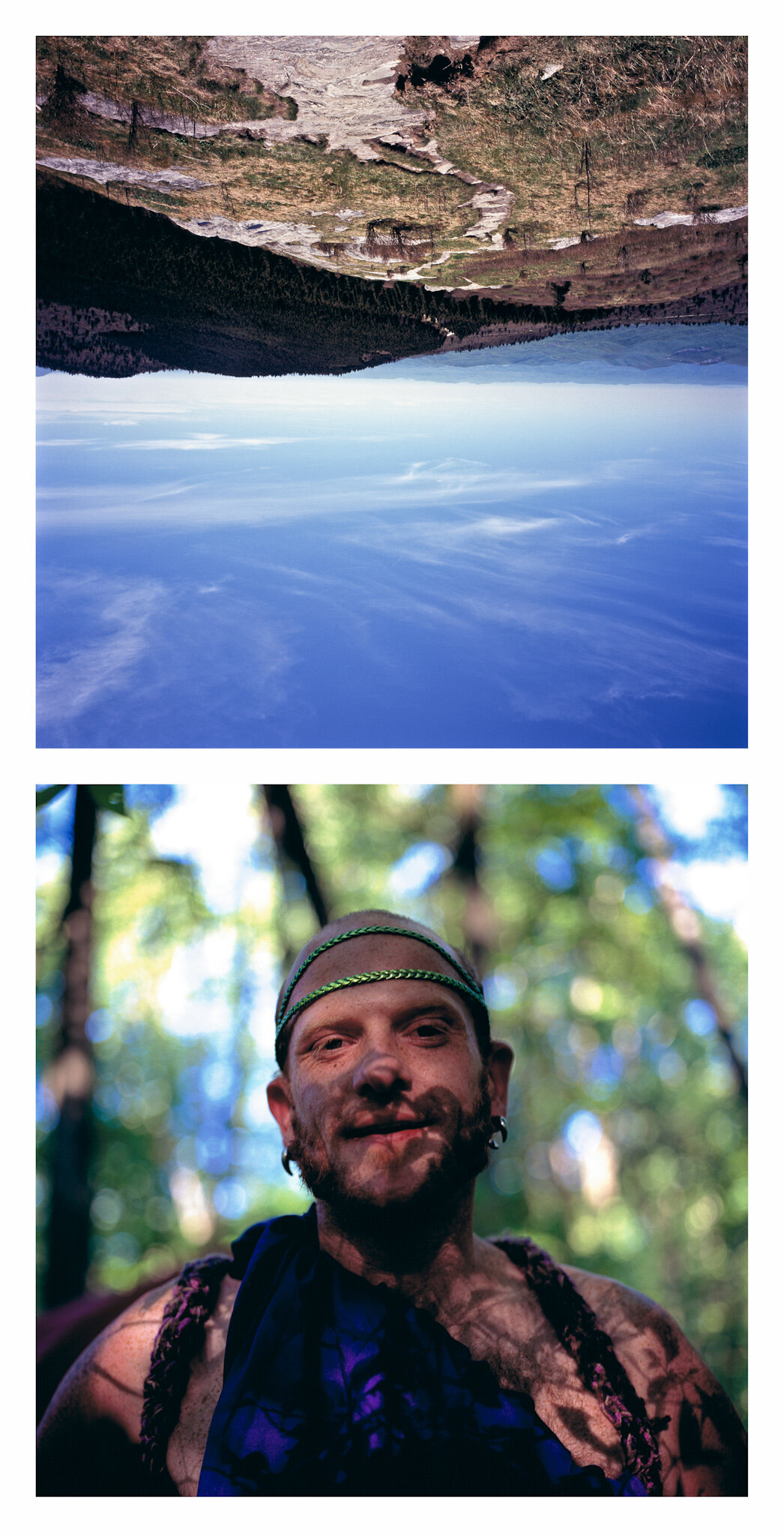STATES
Queering the Landscape
Article by Damian Owen-Board
What does it mean to be queer and what is queer anyway? Jacob Love goes some way to question what that word means in his work, States. This ongoing project has been shot over the last three years on road trips across America. Presented here as diptychs, Love displays the ‘vastness’ of the American landscape hanging, literally, above the heads of those who inhabit them.
Love’s landscapes seem at first deeply familiar, following in the footsteps of the grand tradition perfected by Ansel Adams of using the camera as a tool to tame the supposedly untameable wilderness of the American landscape. In fact it seems as if no time has passed between those painstakingly captured by Adams and Love’s States. However the subversive act of inverting the landscapes has taken the achingly familiar and injected a bewildering sense of otherness or rather queerness to his pictures. Where once we felt we could understand, even dismiss these common photographic sights/sites, now, through their eschewing, we are forced to confront their magnitude anew with a queer gaze
This inversion creates a fundamental shift in how we perceive the world around us. Suddenly these solid awe-inspiring landmasses become mere shape and pattern, traversable where previously they had seemed insurmountable. Trees hang down from the sky, not as trees but mere organic matter and shape, decorative in the same way that the garland on the head of one of the portrait subjects is.
This transgressive action on Love’s part explains the calm optimism that stares out from the residents of States. The landscapes no longer resemble monuments to America’s past but through change, the possibility of it’s future. These almost mythic people are finding a way to be both different from and uniquely part of the world around them.
In attempting to carve out a new queer identity for themselves, Love’s subjects begin to resemble the pioneers that tamed and formed the monumental landscape in the first place, but the existence they are carving for themselves is bound less by traditional established values but rather modes they create themselves, fluidly as they move through life.
Surely that is at the heart of Love’s questioning of what it means to be queer –for him it is a protean and evolving state, embracing rather than denying change. These constantly forming landscapes and these constantly evolving people are one and the same, in search of new ways of being.
Damian Owen-Board is an artist working in photography and video. He is a lecturer in Photography as art practice at Goldsmiths, University of London. He has previously written about the work of Jacob Love in the book ‘Line of Flight’.








